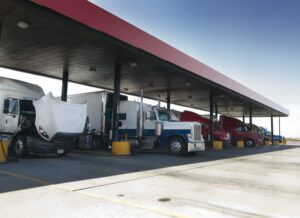Setting Liability Limits for Trucking Companies
For years, the trucking industry has been caught between a rock and a hard place with “nuclear verdicts,” with courts levying payouts averaging in the tens of millions of dollars. Now there is a push to not only limit these payouts, but to reform how insurance companies treat the trucking industry as a whole.
Nuclear Verdicts
Statistically speaking, people outside of the trucking industry do not understand the extensive training that drivers receive before they can get a CDL, nor do they understand the technology used to ensure safe hauling. So when an accident occurs and a truck is involved, juries and judges are inclined to rule against the driver or carrier, resulting in prohibitively high damage awards. In 2018, the average nuclear verdict – that is, a verdict awarding over $1 million in damages – jumped from $1.1 million to over $22 million. Nuclear verdicts not only impeded the trucking industry, but on a state-by-state basis, trucking companies that were only 15% or 10% at fault or negligent were still responsible for 100% of the damages awarded.
The Impact on Trucking Insurance
Trucking insurance is one of the biggest startup costs – and ongoing expenses – for trucking companies. When a nuclear verdict occurs, insurance companies hike their rates, lowering profits for carriers and placing a strain on cash flow. Beyond those carriers with verdicts against them, insurance companies now see carriers and owner-operators as high-risk clients, so even the basic coverage per operating vehicle is between $750,000 and above, with liability insurance for the carrier as a whole rising every year. Even by implementing new technology and safeguards against accidents, insurance companies counter by saying the technology could fail, or that monitoring information and warning can be a distraction to drivers. This places the trucking industry in a seemingly no-win situation.

Reform Starts with One State
For years, the trucking industry has been calling for reform on nuclear verdicts, but there is nothing in the way of federal legislation to curb limits on damages awarded by the courts. Everything is left up to the states, and no sweeping tort reform will offer national guidelines – until now. Late last month, the Iowa Senate approved a bill that would set a limit on the amount of damages that could be awarded by court after an accident involving a truck. Bill 228 would place a cap of $5 million in the case of nuclear verdicts. The bill still has yet to be signed by the Governor, but placing a limit on nuclear verdicts could send a strong message to other states, giving them the incentive to do the same. The $5 million cap is not an arbitrary number. $5 million matches the highest federal insurance requirements, which is used for vehicles that haul hazardous materials like biowaste and radioactive substances. Since states rely on trucking companies for tax revenue, as well as to provide people, businesses, and public works with goods and materials, reducing payouts and nuclear verdicts would be a benefit to everyone involved.
The Move to Lower Insurance Premiums for Trucking Companies
Earlier in 2023, a Bloomberg study showed that the trucking industry is carrying the majority of rising insurance costs. As mentioned above, the trucking industry is considered a high-risk category, so insurance coverage requirements are cost-prohibitive. Trucking companies have high liability, and then there are additional costs for the type of vehicles they use, the sectors they serve (for example, hauling livestock, hazardous materials, delicate equipment, etc.), as well as damage and parts replacement. Combine this with the recent inflationary pressures on diesel and labor, and many trucking companies – as well as owner-operators – are running on very tight profit margins, if not barely treading water. Hopefully, with the recent legislation in Iowa, the lower maximum payouts will move insurance carriers to lower their premiums. A cap on verdicts may prevent plaintiffs from seeking unreasonable damages, so insurance companies will only be able to hike rates by so much after an accident, whether or not the driver is found to be at fault.
Single Point Capital offers comprehensive insurance coverage designed specifically for the trucking industry. Additionally, Single Point will cover up to 50% of your insurance down payment, and then spread out the balance over a period of weeks, which is repaid from a percentage of the invoices you factor through us. To learn more, contact the team at Single Point Capital today.
